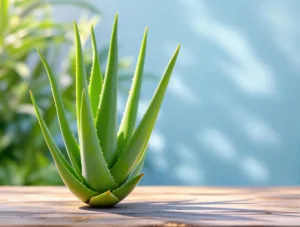The Ultimate Guide to Natural Oils for Treating Split Ends and Repairing Damaged Hair
Introduction
Split ends and damaged hair are common concerns that affect people of all hair types. Whether caused by excessive heat styling, chemical treatments, or environmental factors, split ends can make hair look frizzy, dull, and unmanageable. While trimming is the most effective way to eliminate them, prevention and repair are key to maintaining healthy hair long-term.
Natural oils have been used for centuries to nourish, strengthen, and restore hair. Packed with essential fatty acids, vitamins, and antioxidants, these oils penetrate the hair shaft, sealing moisture and preventing further damage. This comprehensive guide explores the best natural oils for treating split ends, their benefits, and how to use them effectively for optimal results.
Understanding Split Ends: Causes and Prevention
What Are Split Ends?
Split ends, or trichoptilosis, occur when the protective outer layer of the hair (cuticle) wears away, causing the hair fiber to fray. If left untreated, splits can travel up the hair shaft, leading to breakage and stunted growth.
Common Causes of Split Ends
- Heat Styling – Frequent use of blow dryers, flat irons, and curling wands dehydrates hair.
- Chemical Treatments – Bleaching, perming, and relaxing weaken the hair structure.
- Mechanical Damage – Rough brushing, tight hairstyles, and towel-drying cause friction.
- Environmental Stressors – Sun exposure, wind, and pollution strip hair of moisture.
- Poor Nutrition – A lack of essential vitamins (like biotin and vitamin E) affects hair health.
Preventative Measures
- Trim hair every 6-8 weeks.
- Use heat protectants before styling.
- Opt for sulfate-free shampoos.
- Avoid excessive brushing when hair is wet.
The Best Natural Oils for Split Ends and Hair Repair
Not all oils are created equal—some are better at sealing moisture, while others promote elasticity and growth. Below are the most effective natural oils for treating split ends.
1. Coconut Oil
Benefits:
- Penetrates deep into the hair shaft, reducing protein loss.
- Rich in lauric acid, which binds to hair proteins, preventing breakage.
- Adds shine and softness.
How to Use:
- Warm 2-3 tablespoons and apply from mid-length to ends.
- Leave for 30 minutes (or overnight for deep conditioning).
- Rinse with a mild shampoo.
2. Argan Oil
Benefits:
- Packed with vitamin E and antioxidants to repair damage.
- Lightweight, making it ideal for fine hair.
- Tames frizz and adds a silky finish.
How to Use:
- Apply a few drops to damp hair as a leave-in treatment.
- Use as a heat protectant before styling.
3. Jojoba Oil
Benefits:
- Mimics the scalp’s natural sebum, balancing oil production.
- Strengthens hair follicles and prevents dryness.
- Non-greasy and easily absorbed.
How to Use:
- Mix with conditioner for added hydration.
- Massage into the scalp to stimulate growth.
4. Olive Oil
Benefits:
- High in squalene and oleic acid, which moisturize and repair.
- Ideal for thick, coarse hair.
- Protects against UV damage.
How to Use:
- Combine with honey for a hydrating hair mask.
- Apply to ends before swimming to prevent chlorine damage.
5. Avocado Oil
Benefits:
- Contains biotin and monounsaturated fats that strengthen hair.
- Promotes elasticity, reducing breakage.
- Deeply conditions dry, brittle strands.
How to Use:
- Blend with an egg for a protein-rich treatment.
- Apply to damp hair before blow-drying.
6. Almond Oil
Benefits:
- Rich in magnesium and vitamin E, preventing split ends.
- Lightweight and non-comedogenic.
- Soothes an irritated scalp.
How to Use:
- Mix with lavender oil for a relaxing scalp massage.
- Use as a pre-wash treatment to minimize damage.
How to Incorporate Natural Oils into Your Hair Care Routine
1. Pre-Shampoo Treatment
Applying oil before washing helps protect hair from stripping shampoos.
- Method: Coat hair with coconut or olive oil 30 minutes before shampooing.
2. Leave-In Conditioner
A few drops of argan or jojoba oil can keep ends moisturized throughout the day.
3. Overnight Hair Mask
For intense repair, apply avocado or almond oil, cover with a shower cap, and rinse in the morning.
4. Hot Oil Treatment
Warm oil enhances absorption.
- Steps: Heat oil slightly, apply, wrap hair in a warm towel, and rinse after 20 minutes.
Additional Tips for Maximizing Results
- Use a Wide-Tooth Comb – Prevents tugging on fragile ends.
- Sleep on Silk Pillowcases – Reduces friction and breakage.
- Limit Heat Styling – Air-dry whenever possible.
- Stay Hydrated – Healthy hair starts from within.
Final Thoughts: Choosing the Best Oil for Your Hair Type
While all the oils listed above are effective, the best choice depends on your hair’s needs:
- Dry, Thick Hair: Coconut or olive oil for deep moisture.
- Fine or Oily Hair: Jojoba or argan oil for lightweight hydration.
- Chemically Treated Hair: Avocado or almond oil for repair.
Consistency is key—regular use of natural oils, combined with gentle hair care practices, will significantly reduce split ends and restore your hair’s health. By integrating these oils into your routine, you can achieve stronger, shinier, and more resilient locks naturally.
Conclusion
Split ends may be inevitable, but they don’t have to ruin your hair. Natural oils offer a powerful, chemical-free solution to repair damage and prevent future breakage. Whether you opt for coconut oil’s deep conditioning or argan oil’s frizz-taming properties, incorporating these treatments will transform your hair’s texture and vitality. Start with one oil, monitor your hair’s response, and adjust as needed—your journey to healthier, split-end-free hair begins today!









Add comment